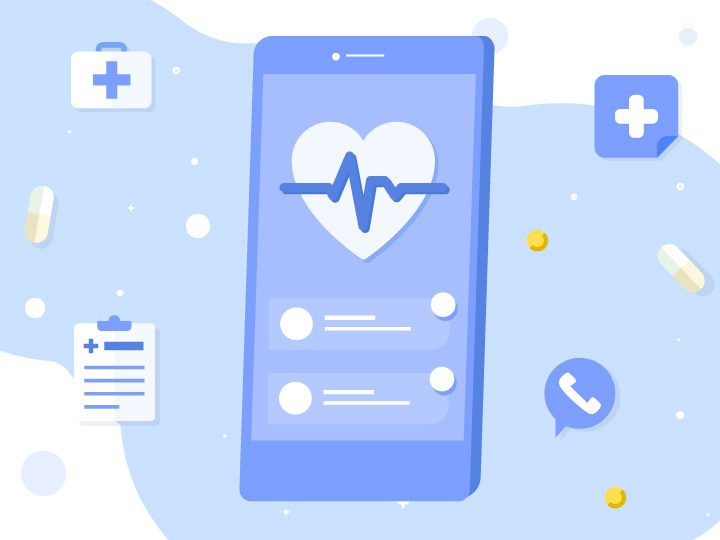Drink tracking apps have become very popular, thanks to movements like mindful drinking and sober curiosity. One of the reasons why drink tracking has gained popularity is that it can help you lower the amount you drink. Perhaps you wonder how tracking your drinks achieves this. Keep reading to find out.
This article will show you how tracking your drinking helps you drink less and some benefits of reducing your drinking.
Why Tracking Your Drinking Helps You Drink Less
Tracking your drinking can help you in different ways, such as making you more mindful about what you are drinking and how much. Here’s a more detailed breakdown of the ways that tracking your drinks helps you:
It puts your drinking into perspective.
Even if you think you don’t drink much, using a binge drinking app can show you patterns like drinking much more than you thought or having more drinks on a given night than you expected.
By recording what you drink, you may naturally drink less—the act of writing it down changes your behavior slightly. Maybe you’ll have three drinks instead of five when you know you have to write it down.
The amount of alcohol you consume also needs to be accurately measured. When a person records three drinks, are they three standard drinks, meaning each contains 1.5 ounces of alcohol or is it more? Knowing what counts as “one standard drink” can help you calculate your intake accurately.
It helps you be more mindful.
You don’t have to sit in a room to practice mindfulness. Drinking cocktails is a great way to practice mindfulness. Drinking mindfully reduces the “one more drink” mentality that often accompanies alcohol and allows you to fully appreciate what you’re drinking without being tempted to overindulge.
When you drink mindfully, you don’t just grab the next beer when you finish the previous one but take time to think about each drink you consume. Our ingrained habits lead us to drink more than we need: After finishing a beer or glass of wine, we automatically reach for another.
Why does that happen? Don’t think about ordering a second round and downing it. Drink slowly and be fully present. Consider how it smells, tastes, and even feels on your tongue. Take note of how you feel physically: Are you sleepy, relaxed, chatty, or dehydrated?
Tracking your drinks is an important part of mindful drinking, which is why mindful drinking apps come with drink-tracking features.
It slows down your drinking.
Having more time to think between drinks is another benefit of tracking your drinks. Here is where you can change your habits. Every drink is an opportunity to reflect on whether you want another. Finish one drink, pause, and think about whether you want to have the next one or not. Taking into account how you feel can help you make an informed choice. Plus, slowing down can help you avoid hangovers.
It incentivizes planning.
Once you start tracking your drinking, you begin planning for your alcohol consumption before leaving the house. Some people find that laying out a specific (realistic) strategy for the coming day/week/month is the best approach. Therefore, you will know what to expect and what’s coming up.
Creating an accountability roadmap and setting an intention for the week are achieved by planning. Furthermore, you are aware that every drink you consume must be entered into the tracker, which adds a level of awareness to it.
4 Benefits of Drinking Less
There are a lot of benefits that come with cutting back on your drinking, both physical and mental. Here are four benefits we feel you should know:
A Healthy Weight
Drinking in moderation can help you lose weight. Approximately 150 calories are contained in one serving of alcohol. Alcohol’s active ingredient, ethanol, is regarded as the second most calorie-dense substance after fat. So, less drinking means fewer calories, which can help your dieting efforts.
Improved Cognition and Emotional Well-Being
Some studies say moderate drinking may lower your risk of certain cognitive impairments, such as dementia and Alzheimer’s. Alcohol is believed to make your brain cells “more fit,” so healthy alcohol dosages may help short-term and long-term cognitive functions.
In addition to improving your emotional well-being, moderate alcohol consumption may reduce stress levels. Studies have shown that people who consume low to moderate amounts of alcohol report feelings of happiness and euphoria, along with pleasant, carefree feelings associated with psychological well-being.
Improved Sleep
The quality of your sleep is affected by binge drinking and heavy drinking. While alcohol has a sedative effect, you will inevitably have trouble falling and staying asleep if you drink heavily. Moderately reducing your alcohol consumption may help you sleep better and improve the quality of your sleep. A lack of sleep puts you at greater risk for various medical and emotional conditions. We use the hours we are asleep to heal and restore our bodies, which is important for our overall health.
Lower Blood Pressure
Blood pressure can rise due to binge drinking after just one time. Binge drinking can increase your blood pressure in the long run if you do it repeatedly or on an ongoing basis. Moderate drinking can bring health benefits such as lower blood pressure, weight loss, and reducing the effects of alcohol on certain blood pressure and other medications.
Final Thoughts
Knowing how much you drink is only part of the puzzle. Tracking your drinking helps you cut back by making you aware of your consumption levels, which helps you slow down and gives you a clearer view of how much you drink. To cut back on your drinking, you need to complement your tracking with other strategies that help you stay on your goal. Luckily for you, drinking apps come with various extra features, such as goal maps, weekly plans, and motivational messages.





























